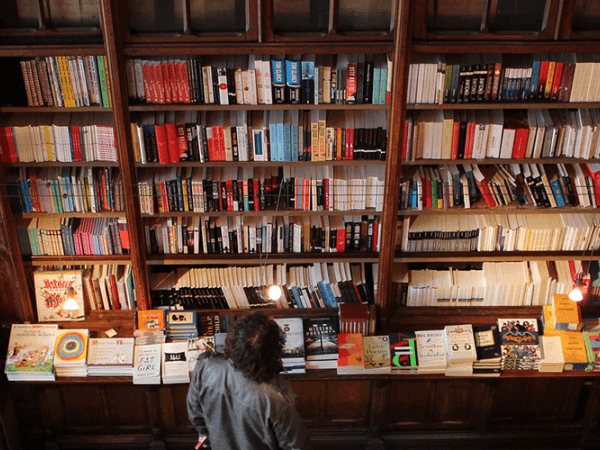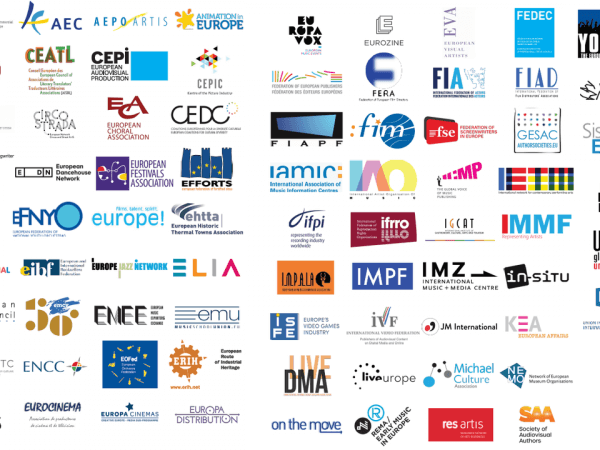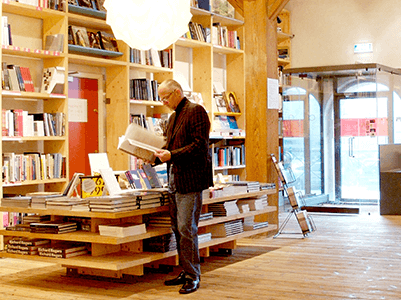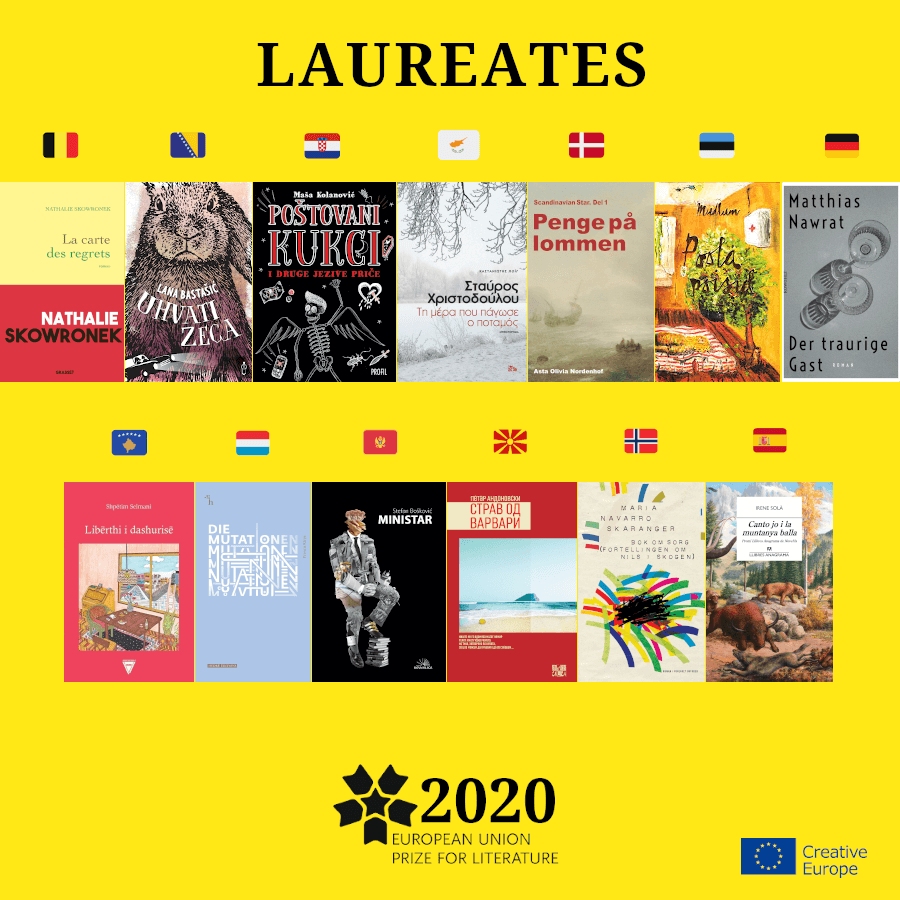Bookselling in times of health emergencies

Recent health emergency has prompted policymakers around the world to provide recommendations on how to best protect ourselves from the COVID-19 pandemic – maintaining strict hygiene, limiting unnecessary travel and time spent outside, as well as banning public gatherings. As more and more countries impose movement restrictions, businesses that rely on physical presence of customers are left in precarious position. Book industry as whole is dealing with a substantial impact: cancelled trade fairs, seized supply chains, and frozen rights sales. For booksellers in particular the current situation is already resulting in a slowdown in sales: a Chinese bookstore chain reported an 80% dip in sales, book sales in Italy are down by 25%, UK’s W. H. Smith issued £40 million profit warning due to travel restrictions, while Belgium’s largest bookshop Filigranes is projecting a 33% decrease in turnover per week. Spanish book industry is projecting a loss of nine billion euros for the first six months of 2020.
As countries around the world introduce measures to try and contain the spread of Coronavirus, many independent bookshops are announcing closures of part, or even whole, businesses. However, to ensure they can survive this large and unexpected shift in their business model, booksellers are encouraging their customers to buy books online – with substantial impact. Many booksellers are coming up with innovative measures to support local communities during times of social distancing, self-isolation, or even full lockdowns.
In recent weeks, we heard about bookstores pairing with a food delivery app to help get books into the hands of readers in China, UK bookstores are hand delivering books to customers in self-isolation by skateboards and bicycles, while Sweden and Belgium are also seeing a spike in online orders, which are being hand delivered.
The book industry is not idle in these trying times. Events are moving online – a great example is a recent book launch, via Instagram Live, hosted by author Javier Castillo and journalist Maria Gomez in Spain. Book clubs are moving online, providing an opportunity for people to safely engage with others and discuss books they have been reading while staying at home. Booksellers are exploring options how to digitise activities they would have otherwise organised in their stores - some are providing book recommendations through live broadcasts, others are hosting reading hours for children staying at home.
Get involved: Digital reading initiatives
Reading has positive impact on both physical and mental health, and many countries are launching digital campaigns to encourage their citizens, especially those with young children, to pick up reading while staying at home. Reading helps strengthen our brains, increases our ability to emphatise, helps us to improve our vocabulary, and helps in preventing age-related cognitive decline. In addition, reading can help reduce stress levels, alleviate depression symptoms, and prepare us for a good night’s rest.
Below you can find various initiatives launched recently, from supporting local booksellers to reading competitions:
• Austria: 'support your bookshop online' campaign, providing a list of local bookstores with online stores
• Australia: list of local bookstores with activities and services they are still offering
• Belgium: collection of online reading platforms
• Italy: Italians are using many hashtags on social networks through which the whole book sector shares its book recommendations, while readers are invited to share their current read: #libriaperti, #ioleggoacasa, #iostoacasa, #conunlibro, #librichecisalvano
• Germany: Börsenverein is promoting its interactive overview of local bookstores, which includes information about online stores. A lot of publishing houses are helping to raise awareness among its readers to buy books in local bookstores: #findyourbookstore, #buchsolidarität. Börsenverein is also promoting #stayathomereadabook
• Netherlands: 'I read at home campaign' by the Dutch CPNB Foundation
• Norway: 'whole Norway is reading'
• Spain: #Buidemlesllibreries (‘Let’s empty the bookshops’ in Catalan)
• Sweden: #hemmamedenbok
• UK and Ireland: #ChooseBookshops
Resources for booksellers
This health emergency has substantially shifted our way of living and many effects are already being felt by communities and businesses alike. EIBF members are at the forefront supporting the independent bookstores in their countries and regions to ensure they can overcome the current situation.
Below you can find information on ongoing initiatives from our members. Please note that this database is being updated as more information becomes available:
• The Bookseller Association of the UK and Ireland launched a webpage with dedicated resources, including business support helpline
• The American Booksellers Association’s Coronavirus resources are available here
• Syndicat de la Librairie Française is publishing daily updates and measures to support businesses
• Swedish Booksellers Association is providing advice to Swedish booksellers here
• Börsenverein, the German Publishers and Booksellers Association, has pulled together important links and information on Coronavirus
• Union of Czech Booksellers and Publishers is mapping the impact of Coronavirus pandemic on the book sector in country. They are sharing potential ideas to soften the negative consequences of lockdown here.
• The Danish Booksellers Association is sharing latest news and retail restrictions on Coronavirus here
• The Bookseller Association of the Netherlands is collating useful information for booksellers regarding Coronavirus
• The Swiss Association of Booksellers and Publishers shares updated information for booksellers here
• Australian Booksellers Association is collating information for booksellers on COVID-19 here
• The Association of New Zealand Booksellers is providing Coronavirus information for booksellers here
Support to small- and medium-sized enterprises
The COVID-19 Coronavirus outbreak is having a severe economic impact on many businesses across Europe and the world, including the bookselling industry. On 19 March, European Commission Vice-President Margrethe Vestager presented the State Aid Temporary Framework, a plan devised to ensure the continuity of economic activity in the EU and for member states to provide financial assistance to businesses of all types during and after the Coronavirus pandemic. This temporary framework enables countries to make use of the ‘full flexibility’ foreseen under pre-existing EU State aid rules and to complement them with the following measures. The State Aid Temporary Framework is to remain in place until the end of December 2020.
We are collating resources around what measures governments across the EU have launched to help small- and medium-sized companies during the COVID-19, Coronavirus outbreak. Find out how your business can claim financial support during the outbreak, and what rental agreement measures have been announced to help SMEs (both articles are available to EIBF members only).
We are thinking of everyone struggling in these uncertain times. We hope you are keeping safe and reading a book!


















